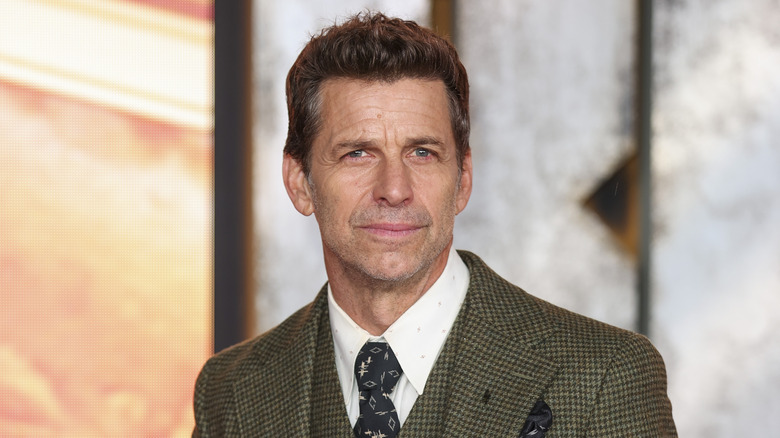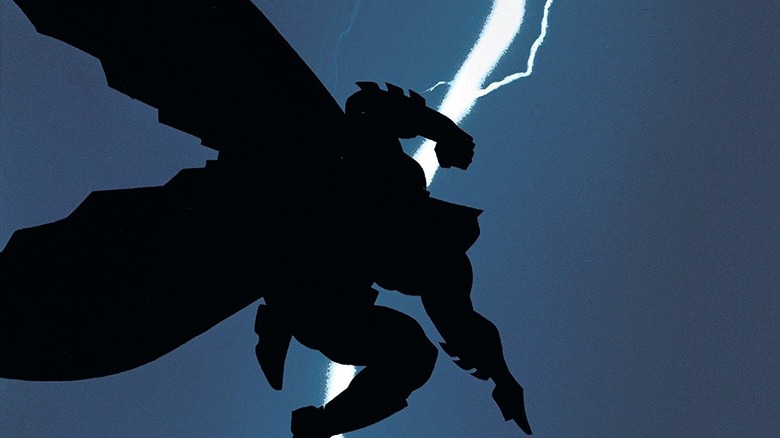Zack Snyder Changed His Superman To Avoid Making Him 'Pure Propaganda'
Director Zack Snyder put his stamp on Superman in the DC Universe with his unique characterization of the hero in "Man of Steel," "Batman v Superman: Dawn of Justice," and his 2021 version of "Justice League." However, the filmmaker received plenty of criticism for his interpretation of the usually hopeful superhero, as he made the Man of Tomorrow's actions, such as killing General Zod in a fight leveling buildings in Metropolis, much darker than audiences have come to expect.
Discussing why he decided to take DC's most iconic characters, specifically Superman and Batman, down a darker path in his films, Snyder explained to Variety he wanted to avoid making them propaganda and not stick to previous conceptions of how the heroes should have acted: "How could I look at Superman, Batman with a straight face and just say 'Here he is, enjoy.' I love the characters, I'm not saying I wanted to break them or make them less than they are. But I'm also not going to hand them over like a piece of pure propaganda that said Superman is awesome or that Batman has an unbreakable moral code."
For better or worse, Snyder had a direct vision for his DC Universe and didn't waver from it. His version of Batman didn't have his long-established no-kill rule from the comics, and his live-action Superman focused more on the struggles of being a god-like figure. However, there's a reason why the talented director made these cynical changes.
Snyder's cinematic vision was inspired by the comics
Zack Snyder offered a version of the DC Universe inspired by darker interpretations of Batman and Superman. The director specifically based his characters on subversive takes on the superhero genre, such as Batman from the iconic "The Dark Knight Returns" miniseries (by Frank Miller, Klaus Janson, Lynn Varley, and John Constanza). In the past, Snyder directly referenced the work of Alan Moore, the legendary writer of "Watchmen," another more mature comic book the director adapted, while saying those who expect heroes not to commit atrocities and do bad things were living in a dream world.
"It's a cool point of view to be like, 'My heroes are still innocent. My heroes didn't lie to America. My heroes didn't embezzle money. My heroes didn't commit any atrocities.' I'm like, 'That's cool, but you're living in a f****** dream world.' The cool thing is like mythologically speaking, I'm 100 percent fine — and by the way I love more than anything Superman and Batman — but in the same way that Alan Moore was fed up with the f****** like, 'Okay no, they do this,' clearly this is a response."
Ultimately, Snyder's vision was based not on the classic interpretations of Superman and Batman but on ones that deconstructed them and didn't adhere to rules about strict moral codes. He stuck with his vision of the heroes and made films based on how they may be viewed in the real world — negative impacts and all. Even if you don't like or enjoy his darker versions of Superman and Batman, Snyder should be commended for sticking to his guns.

